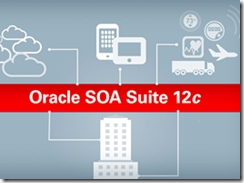When you read this you arrived safely in Split and we would like to
thank you and your management for investing the time to attend the PaaS
Partner Community Forum XXIV. There will be more than 200 delegates from
more than 40 countries, which will give you the opportunity to learn
from other cloud minded partners and network with partners from
different regions as we also have representation from Africa, Asia,
North America, South America and the Middle-East. Many Oracle employees
will attend and we would like to invite you to challenge them how we can
support you to grow your business and maintain profitability on your
investment with Oracle.
This year’s conference marks a turning
point in our journey. Cloud Computing is leading on all service levels.
SaaS solutions became a standard model for enterprise customers.
Infrastructure as a Service is used to deploy all kind of workload
flexible in the cloud. Platform as a Service (PaaS) is crossing the
chasm. At our community workspaces you can get a slide deck with more
than 70 PaaS live production references. PaaS often is used to integrate
SaaS solutions with other SaaS solutions or on-premises. Cloud
platforms like Application Cloud Container (ACC) enable developers to
build cloud native applications utilizing a microservices model. Often
this applications are optimized for mobile devices. Application
Programming Interfaces (APIs) play a key role in the digital
transformation. New cloud services like machine learning and chatbots
are arising.
During this event you will see presentations from
Product Management, Pre-Sales Consultants and Partners, that will share
their real life experiences with you how to implement Oracle PaaS &
Middleware solutions and to see the business drivers behind these
projects.
Focus of the 24th Fusion Middleware Partner
Community Forum will be Platform as a Service (PaaS) Cloud Computing.
During the last months many of the new PaaS service became mature. The
Partner Community Forum is one of the best opportunities to get details
and hands-on trainings about Integration Cloud Service (ICS), SOA Cloud
Service (SOA CS), API Platform Cloud Service (API CS), Process Cloud
Service (PCS), Mobile Cloud Service (MCS), Internet of Things Cloud
Service (IoT CS), Java Cloud & Developer Cloud Service, Application
Builder Cloud Service (ABCs) and Application Container Cloud Service
(ACCs) and Content and Experience Cloud Service. Oracle PaaS Services
give partners many new opportunities to build, customize and integrate
applications in a public cloud environment. Our joint customers will
benefit from this new cloud offering by fast time to market, higher
availability and flexibility, lower project cost an risks. With hybrid
cloud computing Oracle offers a unique value proposition for customer
and partners. You can choose where to host your cloud solutions in the
data center of your choice. Cloud marketplace gives you as a partner new
opportunities to build, deploy and promote and market offerings on the
Oracle PaaS Cloud. The Oracle Cloud Partner Program reflect the focus on
cloud computing.
The Enrich SaaS with PaaS initiative is designed
for Oracle SaaS applications partners. The underlying PaaS platform
enables customers to enrich and differentiate SaaS solutions. Connect
SaaS solutions with other SaaS solutions and on-premises, analyze data
and extend applications. As part of the conference multiple session and a
two days hands-on training are offered to Enrich SaaS solutions with
PaaS.
Each conference attendee was granted access to free PaaS
demo service before and during the conferences. As an Oracle gold
partner or above you can request free PaaS demo services via
demo.oracle.com or our partner communities any time – make use of it!
On
the first conference day you can learn from ACEs implementing
successful PaaS solutions at our joint customers and PaaS best
practices.
We are excited to welcome again Ed Zou at the
conference who will highlight in his keynote how to innovate on Oracle
Cloud Platform – build, integrate, analyze and secure solutions. Digital
is changing the economy, our joint customers face this challenge, PaaS
is the platform you can build new Digital solutions either in the Cloud
on on-premises. Thanks to our product management team you will get
updates and roadmap details including demos for our PaaS &
Middleware solutions.
We would like to congratulate the annual
winners of the Fusion Middleware Partner Community Awards. You will have
the opportunity to learn direct from them why they have won the awards.
On Tuesday evening during our social event you will have plenty of
chance for deep discussion within the community and speakers.
On
the third day you can choose between four breakout tracks: Enterprise
Integration track, BPM & User experience track, Application
Development track and Mobile & Internet of Things track. We will
keep our tradition to wrap up the conference with the legendary ACE demo
– special thanks to Lucas Jellema and team!
Thursday and Friday
six different hands-on boot camps take place. During the conference we
host run multiple information points. Please take the opportunity to
talk to the product management teams and business development teams.
From previous conferences we received the feedback that networking is
key, it is always a challenge to keep the balance between more exiting
live demos and networking breaks. As Split is hard to reach – you will
be rewarded with a hotel & conference center overlooking the beach –
many attendees will arrive on Monday. Therefore we introduce the
community day with best practice and customer references. Take the
opportunity to connect via twitter and Facebook. Also most of the
conference speakers arrive on Monday and are available for 1:1 meetings!
We would like to encourage you to network within the community using our web2.0 features. ![clip_image002 clip_image002]() For twitter please use the event hashtag #PaaSForum:
For twitter please use the event hashtag #PaaSForum:
www.twitter.com/soacommunity @soacommunity
www.twitter.com/wlscommunity @wlscommunity
Like
our Facebook pages and post comments and pictures at:
www.facebook.com/WebLogicCommunity & www.facebook.com/soacommunity
We
also want to give a special thank you to our Specialized partners for
SOA, BPM, WebLogic and ADF that have been able to differentiate
themselves in their local markets by showing their experience and
commitment in Oracle Fusion Middleware & PaaS. To continue your road
to success please ensure that you align with our local PaaS &
Fusion Middleware sales teams and use our marketing services including
the marketing campaigns kits.
The conference, Oracle OpenWorld and
the Summer Camps are part of the annual community highlights. It’s
exciting to see the community to get together full of energy and to
develop new ideas. We opened the conference registration 100 days in
advance, after 50 days the conference was sold out! Special thanks to my
management for assigning additional budget to allow us to host
additional attendees – thank you!
Thank you for attending the conference and your Oracle PaaS & Middleware Partner business.
Jürgen Kress
Conference Guide app & online
![clip_image004 clip_image004]() Conference
details will be posted in the Oracle Events 17 App for Android and iOS.
To get access to the Fusion Middleware Partner Community Forum Apps
please:
Conference
details will be posted in the Oracle Events 17 App for Android and iOS.
To get access to the Fusion Middleware Partner Community Forum Apps
please:
· Make sure you downloaded the app "Oracle Events 17"
· Click on EventID
· Input “PPCF” in the box
· Password “1234”
· Click download
![clip_image006 clip_image006]()
Or download the conference program as a pdf file at our Community Workspaces:
Welcome to Spit!
Learn, Share and Connect
Your conference chair
Jürgen Kress
SOA & BPM Partner Community
For
regular information on Oracle SOA Suite become a member in the SOA
& BPM Partner Community for registration please visit www.oracle.com/goto/emea/soa (OPN account required) If you need support with your account please contact the Oracle Partner Business Center.
![]() Blog
Blog![]() Twitter
Twitter![]() LinkedIn
LinkedIn![image[7][2][2][2] image[7][2][2][2]]() Facebook
Facebook![clip_image002[8][4][2][2][2] clip_image002[8][4][2][2][2]]() Wiki
Wiki
Technorati Tags: SOA Community,Oracle SOA,Oracle BPM,OPN,Jürgen Kress





![image[7][2][2][2] image[7][2][2][2]](http://soacommunity.files.wordpress.com/2013/04/image7222.png?w=20)
![clip_image002[8][4][2][2][2] clip_image002[8][4][2][2][2]](http://soacommunity.files.wordpress.com/2013/04/clip_image00284222.jpg?w=26)














 The New Zealand Inland Revenue has published the confirmed Payroll Specification for 01 April 2017 to 31 March 2018.
The New Zealand Inland Revenue has published the confirmed Payroll Specification for 01 April 2017 to 31 March 2018. 













